Ongoing Optimization
Now it’s time to put the theory into practice. The job is relatively easy. A small program should undergo ongoing optimization.
The program
1 2 3 4 5 6 7 8 9 10 11 12 13 14 15 16 17 18 19 20 21 22 23 24 |
// ongoingOptimization.cpp #include <iostream> #include <thread> int x= 0; int y= 0; void writing(){ x= 2000; y= 11; } void reading(){ std::cout << "y: " << y << " "; std::cout << "x: " << x << std::endl; } int main(){ std::thread thread1(writing); std::thread thread2(reading); thread1.join(); thread2.join(); } |
The program is quite simple. It consists of two threads thread1 and thread2.thread1 writes the values x and y. thread 2 reads the values x and y in the opposite direction. The execution of the program is not so thrilling either.
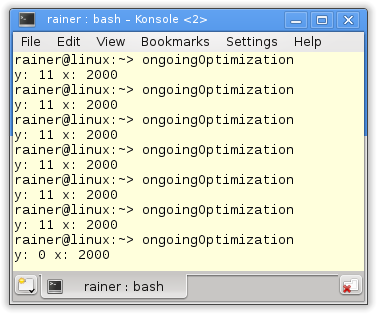
But you see, even this simple program has different results. So I finally came to my key idea.
In the process of the ongoing optimization of the program, I have two questions.
- Is the program well-defined? Precisely, is there a data race?
- Which values for x and y are possible?
The first question is often very challenging to answer. So I will reason in the first step about the program and verify in the second step my reasoning with CppMem. If I have answered the first question, the second answer can easily be derived. I will provide the possible values in a table.
 Modernes C++ Mentoring
Modernes C++ Mentoring
Do you want to stay informed: Subscribe.
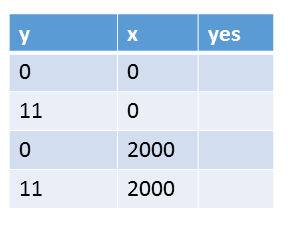
But still, one question isn’t answered yet. What do I mean by ongoing optimization? I mean, by ongoing optimization, that I try to improve the program by weakening the C++ memory model. So in my journey, I discuss the following stations.
- Non-atomic variables
- Locks
- Atomics with sequential consistency
- Atomics with acquire-release semantic
- Atomics with relaxed semantic
- Volatile variables
What’s next?
Of course, this was a very short post. But this post should provide you only the context of my ongoing optimization. In case you are bored, reason about the small program and answer the two question.
- Is the program well-defined?
- Which values for x and y are possible?
Still bored? Then reason about the weakening of the program’s memory model and the consequences. In the next post, I will analyze the unsynchronized access with the help of CppMem. Stay tuned.
Thanks a lot to my Patreon Supporters: Matt Braun, Roman Postanciuc, Tobias Zindl, G Prvulovic, Reinhold Dröge, Abernitzke, Frank Grimm, Sakib, Broeserl, António Pina, Sergey Agafyin, Андрей Бурмистров, Jake, GS, Lawton Shoemake, Jozo Leko, John Breland, Venkat Nandam, Jose Francisco, Douglas Tinkham, Kuchlong Kuchlong, Robert Blanch, Truels Wissneth, Mario Luoni, Friedrich Huber, lennonli, Pramod Tikare Muralidhara, Peter Ware, Daniel Hufschläger, Alessandro Pezzato, Bob Perry, Satish Vangipuram, Andi Ireland, Richard Ohnemus, Michael Dunsky, Leo Goodstadt, John Wiederhirn, Yacob Cohen-Arazi, Florian Tischler, Robin Furness, Michael Young, Holger Detering, Bernd Mühlhaus, Stephen Kelley, Kyle Dean, Tusar Palauri, Juan Dent, George Liao, Daniel Ceperley, Jon T Hess, Stephen Totten, Wolfgang Fütterer, Matthias Grün, Phillip Diekmann, Ben Atakora, Ann Shatoff, Rob North, Bhavith C Achar, Marco Parri Empoli, Philipp Lenk, Charles-Jianye Chen, Keith Jeffery, Matt Godbolt, and Honey Sukesan.
Thanks, in particular, to Jon Hess, Lakshman, Christian Wittenhorst, Sherhy Pyton, Dendi Suhubdy, Sudhakar Belagurusamy, Richard Sargeant, Rusty Fleming, John Nebel, Mipko, Alicja Kaminska, Slavko Radman, and David Poole.
| My special thanks to Embarcadero |  |
| My special thanks to PVS-Studio |  |
| My special thanks to Tipi.build |  |
| My special thanks to Take Up Code |  |
| My special thanks to SHAVEDYAKS |  |
Modernes C++ GmbH
Modernes C++ Mentoring (English)
Rainer Grimm
Yalovastraße 20
72108 Rottenburg
Mail: schulung@ModernesCpp.de
Mentoring: www.ModernesCpp.org
Modernes C++ Mentoring,




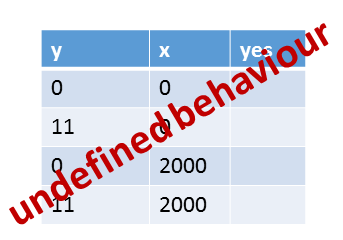
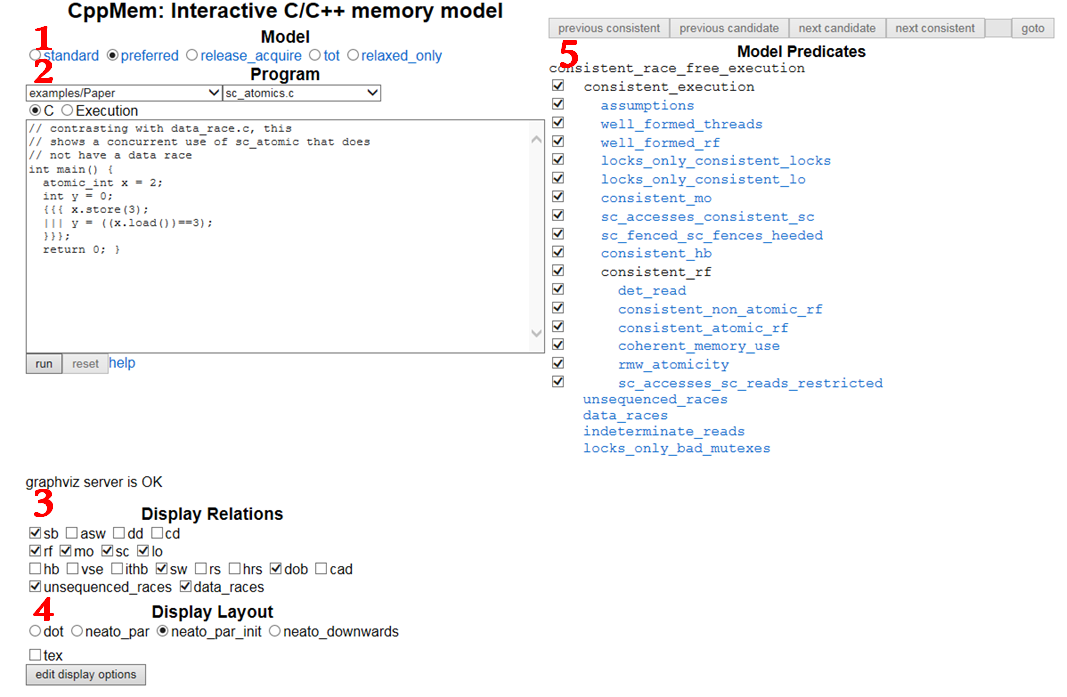
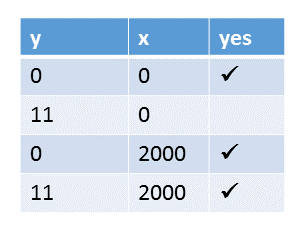
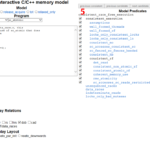
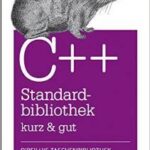
Leave a Reply
Want to join the discussion?Feel free to contribute!